Personalized Marketing: The Key to Increased Engagement and Sales For Healthcare Companies

Are you the founder of a health tech company?
In today's competitive healthcare landscape, it's more important than ever for companies like yours to find new and innovative ways to engage with customers.
One way to do this is to build personalized marketing campaigns.
Engage is a powerful customer engagement platform that allows you to use the insight from your customer data to launch personalized messaging campaigns via email, SMS, push notifications, and in-app messages.
Get Started For Free
In this article, we will cover the following topics:
- What is A Personalized Marketing Campaign?
- Why Personalized Marketing Is Important For HealthTech Companies
- Types Of Personalized Marketing Campaigns
- How To Create Personalized Marketing Campaigns
- How To Track The Results Of Your Personalized Marketing Campaigns
- Conclusion
What Is A Personalized Marketing Campaign?
Personalized marketing campaigns refer to the use of data and analytics to create targeted marketing messages tailored to the individual needs and interests of each customer.
This type of marketing is more likely to resonate with customers and encourage them to take action, such as making a purchase, scheduling an appointment, or signing up for a newsletter.
Why Personalized Marketing Is Important For Healthcare Companies
Personalized marketing is important for healthcare companies because it can help to:
- Increase customer engagement: Personalized marketing messages are more likely to be opened and read by customers, and this is because they are relevant to the customer's interests and needs.
For example, You can use personalized messaging to nurture leads by sending them educational content. - Improve conversion rates: Personalized marketing messages are more likely to lead to conversions, such as purchases, appointments, or sign-ups. This is because they are more likely to resonate with customers and encourage them to take action.
For example, when you send an email to customers who have recently booked an appointment, the email is more likely to be opened and read by the customer and more likely to persuade the customer to take action leading to higher conversion rates. - Increase customer satisfaction: Instead of sending a one-size-fits-all message to your customers, sending personalized messages makes you treat each customer as an individual. Personalized marketing messages show that you understand their needs and interests, which can lead to increased customer satisfaction.
For example, you could send a personalized email to a customer who has recently missed an appointment with a reminder about their upcoming appointment. This type of personalized message can help to improve customer satisfaction. - Reduce marketing costs: Personalized marketing messages can be more cost-effective than traditional marketing methods. This is because they are more likely to reach the right people and lead to conversions.
By using personalized messages that are relevant to the customer's interests and needs, health-tech companies can improve the targeting, engagement, and conversion rates of their marketing campaigns. This can lead to significant savings in marketing costs.
Types Of Personalized Marketing Campaigns
There are a few different types of personalized healthcare marketing campaigns that you can use:
- Email campaigns: Email campaigns are a classic form of personalized messaging. You can use email campaigns to send targeted messages to your customers, such as product recommendations, special offers, or educational content.
- Text message campaigns: Text message campaigns are a more direct form of personalized messaging. You can use text message campaigns to send short, targeted messages to your customers, such as appointment reminders, prescription refills, or just a friendly "hello."
- Push notification campaigns: Push notifications can be very effective in reaching and engaging customers. They are short, targeted messages sent directly to a customer's mobile device.
- Social media campaigns: Social media campaigns are a great way to reach a large audience with personalized messages. You can use social media to target your ads to specific demographics, and you can also use social media to interact with your customers on a personal level.
How To Create Personalized Marketing Campaigns For Your Healthcare Company
There are a few steps involved in creating personalized marketing campaigns:
1. Collect customer data: The first step is to collect customer data. This data can include things like demographics, purchase history, and website activity. You can collect this data through your website, email marketing campaigns, or social media.
As a customer engagement platform, Engage allows you to track two types of customers:
A. Customer attributes: name, email, phone number, age, etc
B. Customer events: signup, book appointment, make a purchase, added product to cart, etc.
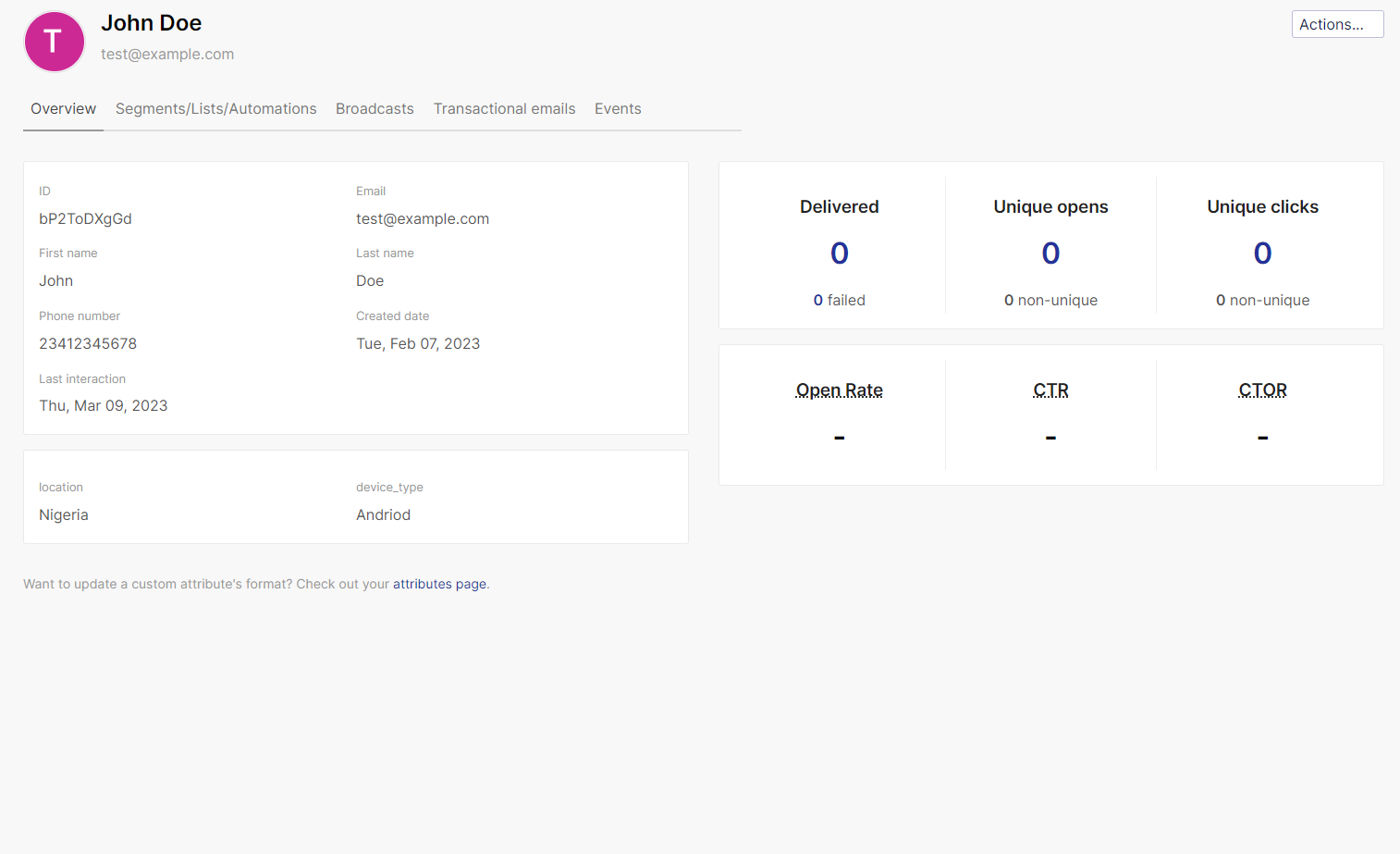
2. Segment your audience: Once you have collected customer data, you will need to segment your audience. This means dividing your customers into groups based on their interests, needs, or demographics. This will allow you to create personalized messages relevant to each customer group.
On Engage, you can create unique customer segments based on the actions the customer takes when using your product.
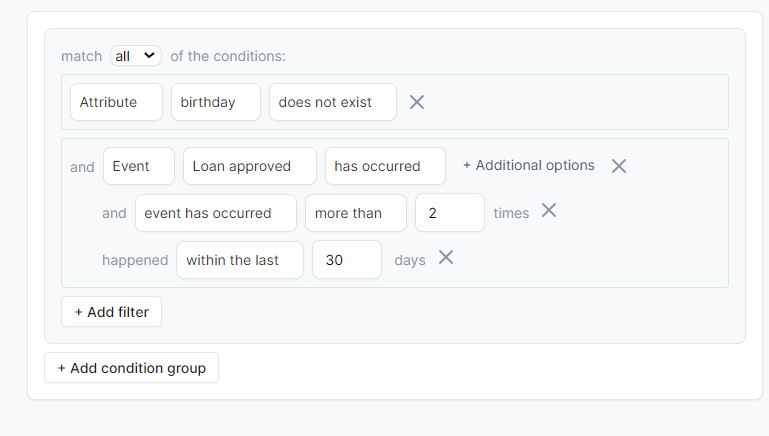
3. Create targeted messages: Once you have segmented your audience, you need to create targeted messages. These messages should be tailored to each group of customers' specific interests and needs.
On Engage, you can send one-time messages to customers or create automated messaging workflows via email, SMS, push notifications, live chat, or in-app messages.
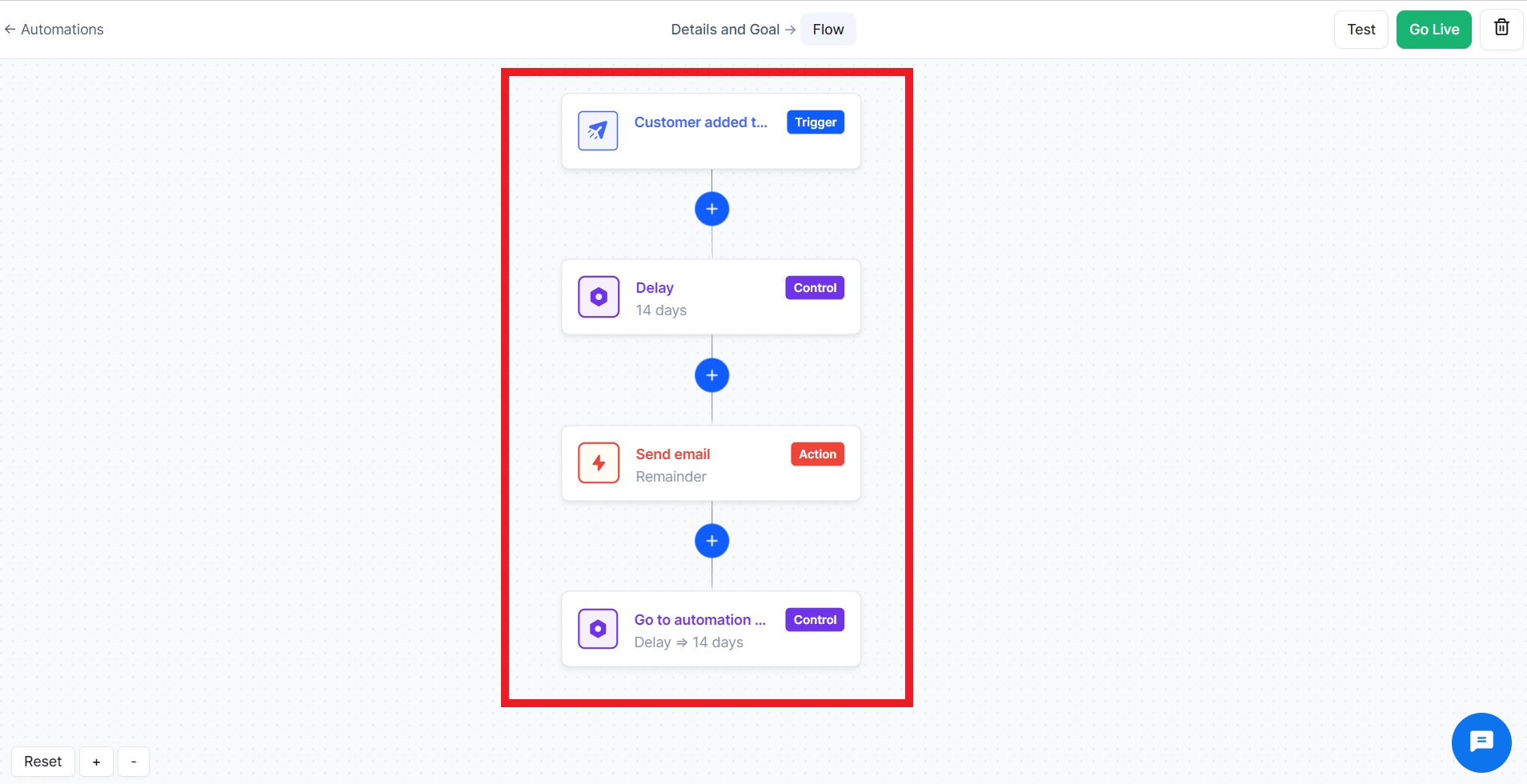
4. Track your results: It's essential to track the results of your personalized healthcare marketing campaigns so you can see what's working and what's not. This will help you adjust your campaigns and improve your results over time.
On Engage, you can track the results of any personalized marketing message you send to your customers.
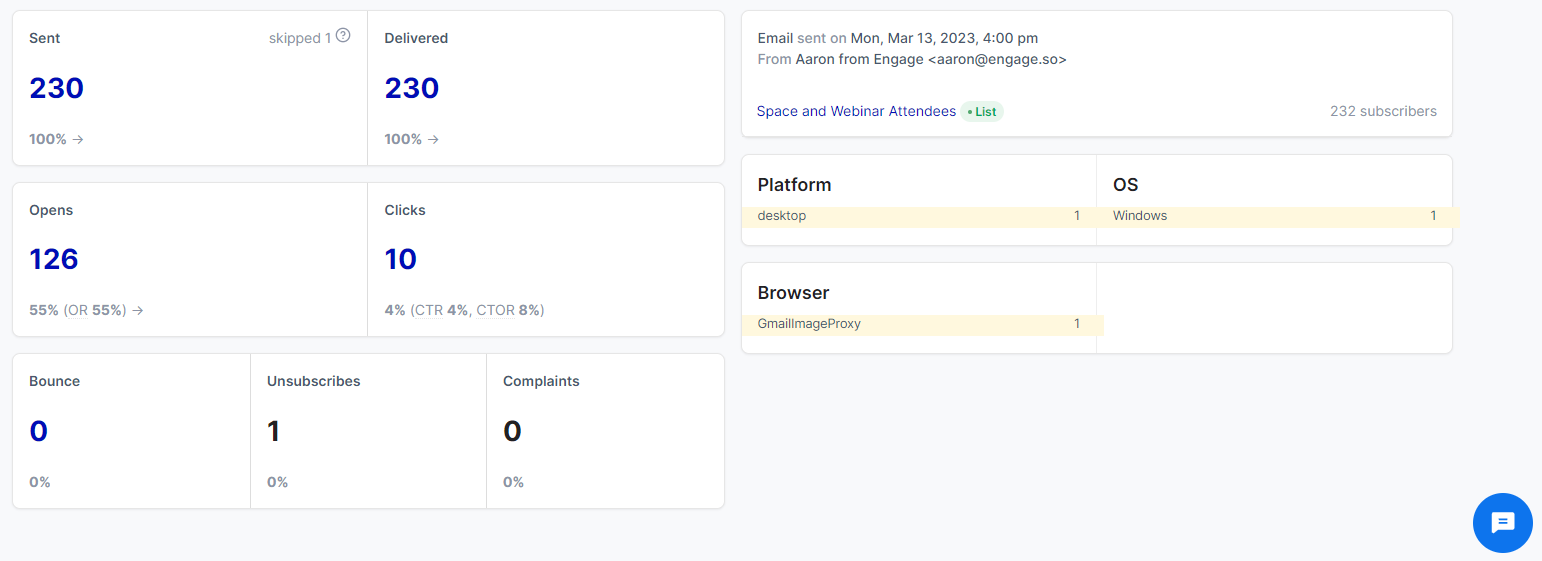
How To Track The Results Of Your Personalized Marketing Campaigns
There are a few metrics that you can track to measure the success of your personalized marketing campaigns:
- Open rates: Open rates measure the percentage of people who open your messages. This is a good metric to track because it shows how interested your customers are in your messages.
On Engage, you can view the open rates for the message sent. - Click-through rates: Click-through rates measure the percentage of people clicking links in your messages. This is a good metric to track because it shows how likely your customers are to take action after reading your messages.
On Engage, you can view the click-through rate for the message sent. - Conversion rates: Conversion rates measure the percentage of people who take a desired action after reading your messages. This is the most vital metric to track because it shows how effective your personalized healthcare marketing campaigns are at driving results.
You can set a conversion goal when creating an automation workflow on Engage. When the automation goals like you can measure the conversion rate by tracking how many customers hit the conversion goal.
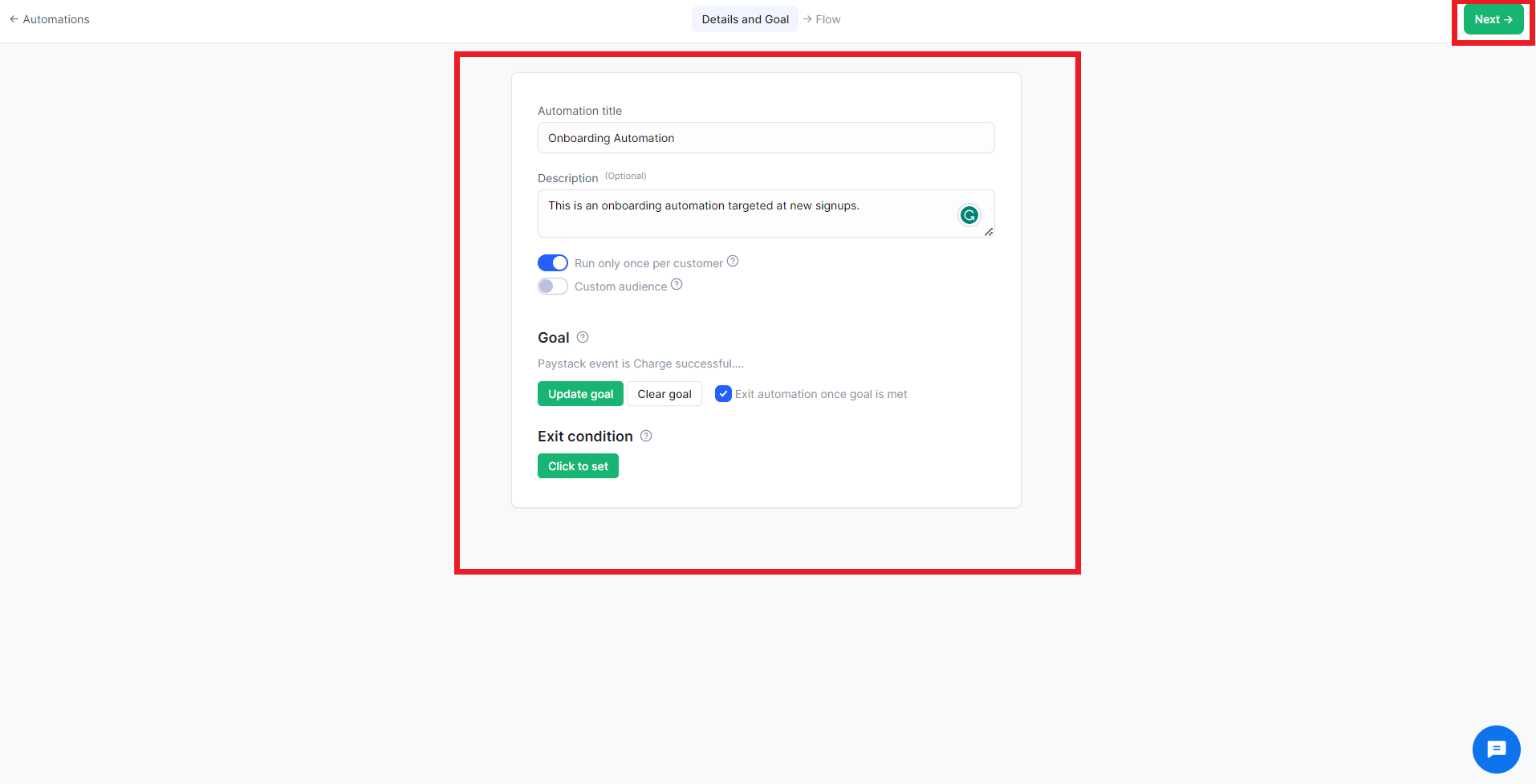
Conclusion
Even though the future of personalized healthcare marketing is bright, there are a few challenges that you may face when using personalized healthcare marketing campaigns for your company:
- Data privacy concerns: Some customers may be concerned about how their data is being used. It's important to be transparent about how you use customer data and obtain consent before sending personalized messages.
At Engage, we take data compliance seriously. We are HIPAA certified, SOC II Type 2, and GDPR compliant. - Cost of implementation: Personalized healthcare marketing campaigns can be more expensive to implement than traditional marketing methods. However, the cost is often offset by the increased engagement and conversion rates you can achieve.
Our pricing at Engage is one of the lowest in the market. You can get started with a Free Trial account, and after that, we only charge you $0.01 per active customer.
